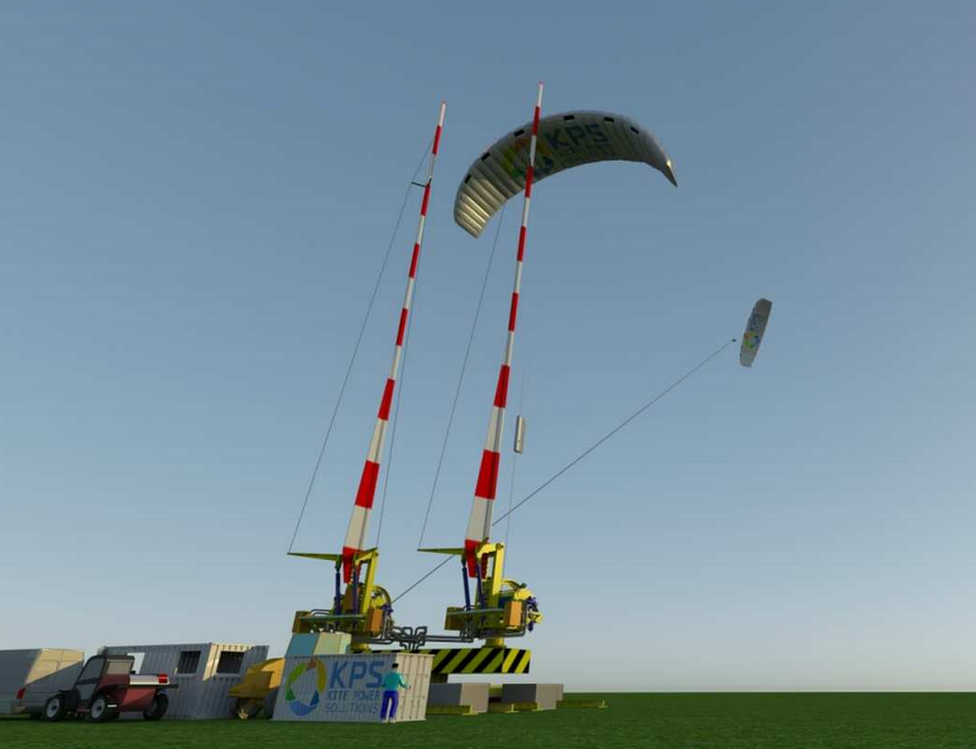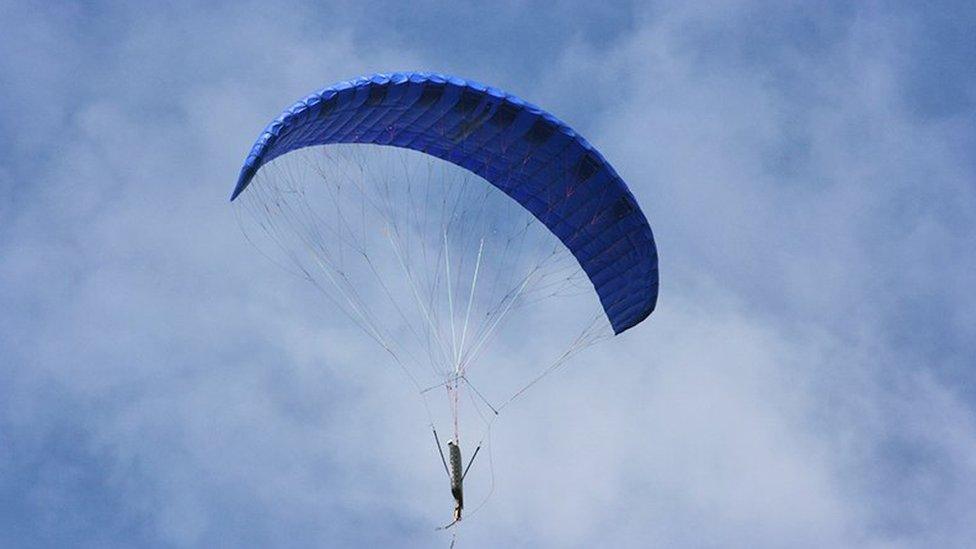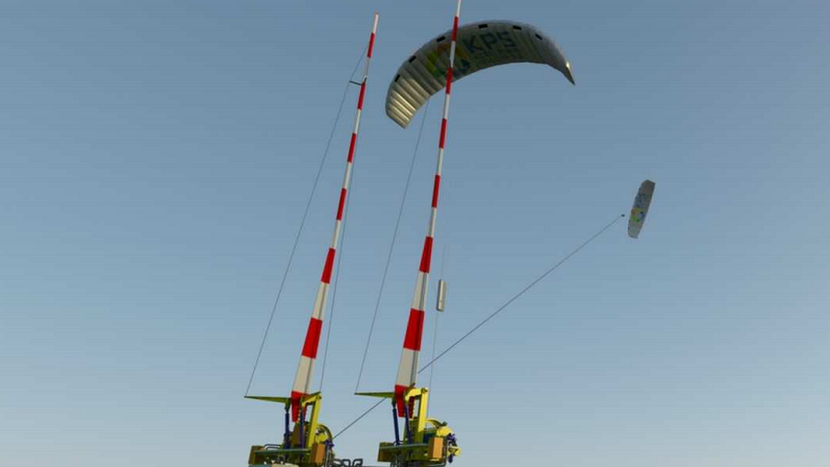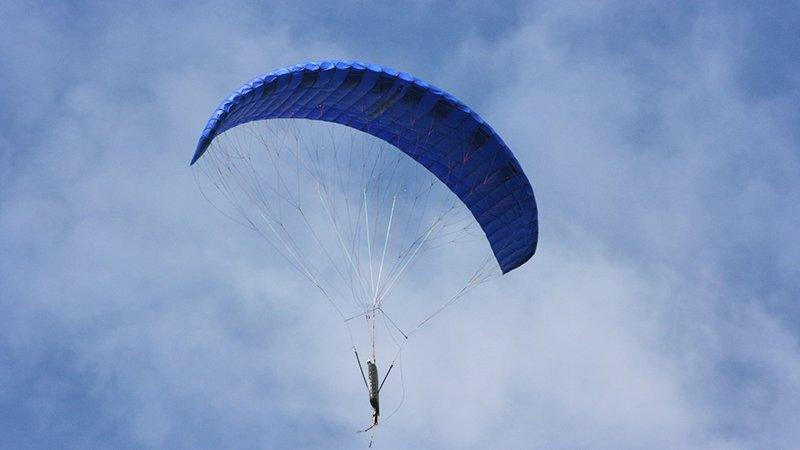West Freugh military range kite power scheme flies forward
- Published

One of the world's first kite power stations should be up and running by next year in southern Scotland.
Kite Power Solutions is behind the development on part of the West Freugh military range near Stranraer.
The research and development project received planning permission earlier this year.
The company has said it could eventually employ up to 500 people by 2025, if the project enters the manufacturing stage.
A planning application for the scheme was tabled in April.
The technology uses two kites tethered to spool drums and as they fly they turn the drums to produce electricity.
A full-sized kite will be 40 metres wide and able to generate two to three megawatts of electricity, comparable to a 100m conventional wind turbine.

Planning permission has been granted for the 500 kilowatt demonstration system at West Freugh which the company believes will be an important stepping stone in developing commercial systems within the next few years.
David Ainsworth, the firm's business development director, said: "This is the third evolution of our technology and the next step after the 500kW will be to develop a 3MW system at West Freugh, which is planned for 2019.
"We believe that we will be able to halve the cost of offshore wind.
"We can install offshore wind installations at a much lower price and can produce offshore wind without the need for government subsidies."
Boundless ambition
The firm has already tested the technology via a much smaller project in Essex and now plans to move its headquarters to Glasgow and double in size in preparation for the West Freugh scheme.
The new project will be the first of its scale in the UK and the second in the world after a research project in Italy.
WWF Scotland director Lang Banks welcomed the development.
He said: "When it comes to renewables, Scotland's ambitions clearly know no bounds.
"Kite power technology offers the prospect of an exciting new way to harness the power of the wind, particularly in places where it might be impractical to erect a wind turbine.
"Alongside energy reduction schemes and other renewables, this technology could contribute to helping us to end our addiction with climate-changing fossil fuels."
- Published13 July 2016

- Published22 April 2016
